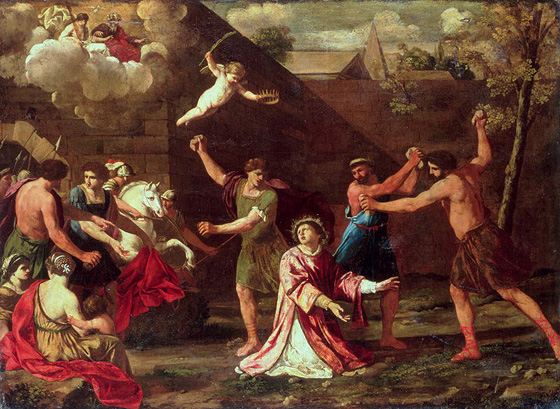The Feast Days of martyrs were often referred to as the dies natalis: the “birthday” of the martyr into eternal life, which is why it’s fitting that we celebrate the first martyr, St. Stephen, during the octave of Christmas. Christmas didn’t end with Christmas Day: it is a solemnity that we celebrate for eight days, and many of those days, like today, celebrate something related to Our Lord’s birth and childhood. Alongside the apostles the martyrs were the most venerated saints in the early Church: martyrdom was the greatest witness you could give to Christ and the greatest imitation of him to which you could aspire.
Today’s First Reading abridges the account of St. Stephen’s martyrdom, but even the moments recalled in the reading show how well his witness reflected what Our Lord warned us to expect in today’s Gospel. St. Stephen was set apart for a special ministry by the apostles because he was full of the Holy Spirit (cf. Acts 6:1-6), and the Spirit makes his arguments invincible when his detractors debate with him and accuse him. Even as they drag him outside of the city and stone him to death he entrusts himself to Our Lord and also forgives his killers.
At the end of the account it mentions Saul, who would some day be St. Paul. In that moment he approved of St. Stephen’s killing; later he would be a great apostle and follow St., Stephen into martyrdom. In today’s Gospel Our Lord tells us not to worry when our faith is called into question. We shouldn’t seek martyrdom, but we shouldn’t shy away from it either: St. Stephen sought to give witness to Christ, no matter where that led him. Let’s ask St. Stephen today to help us give witness to Christ no matter what the world may think of us. Through our witness even the most hardened souls might come to Christ.
Readings: Acts 6:8–10, 7:54–59; Psalm 31:3c–4, 6, 8ab, 16bc, 17; Matthew 10:17–22. See also 14th Week in Ordinary Time, Friday.

